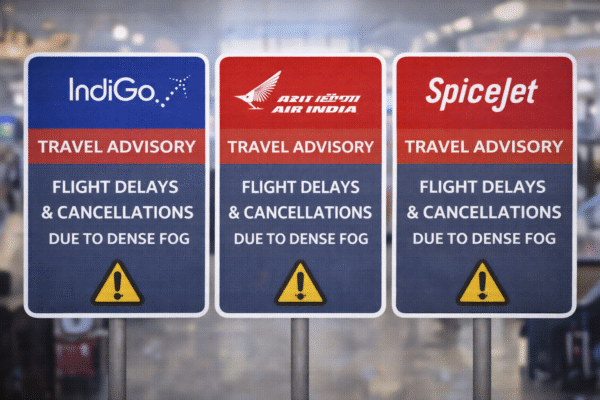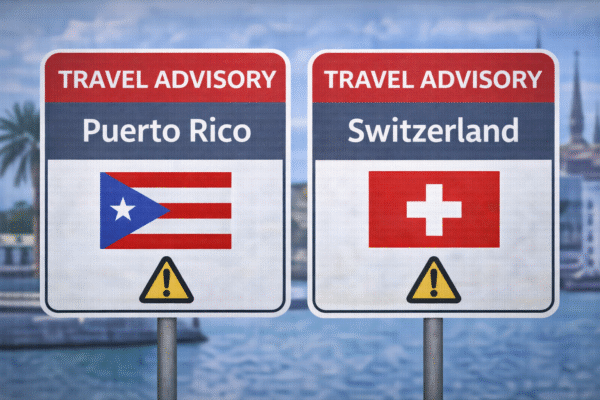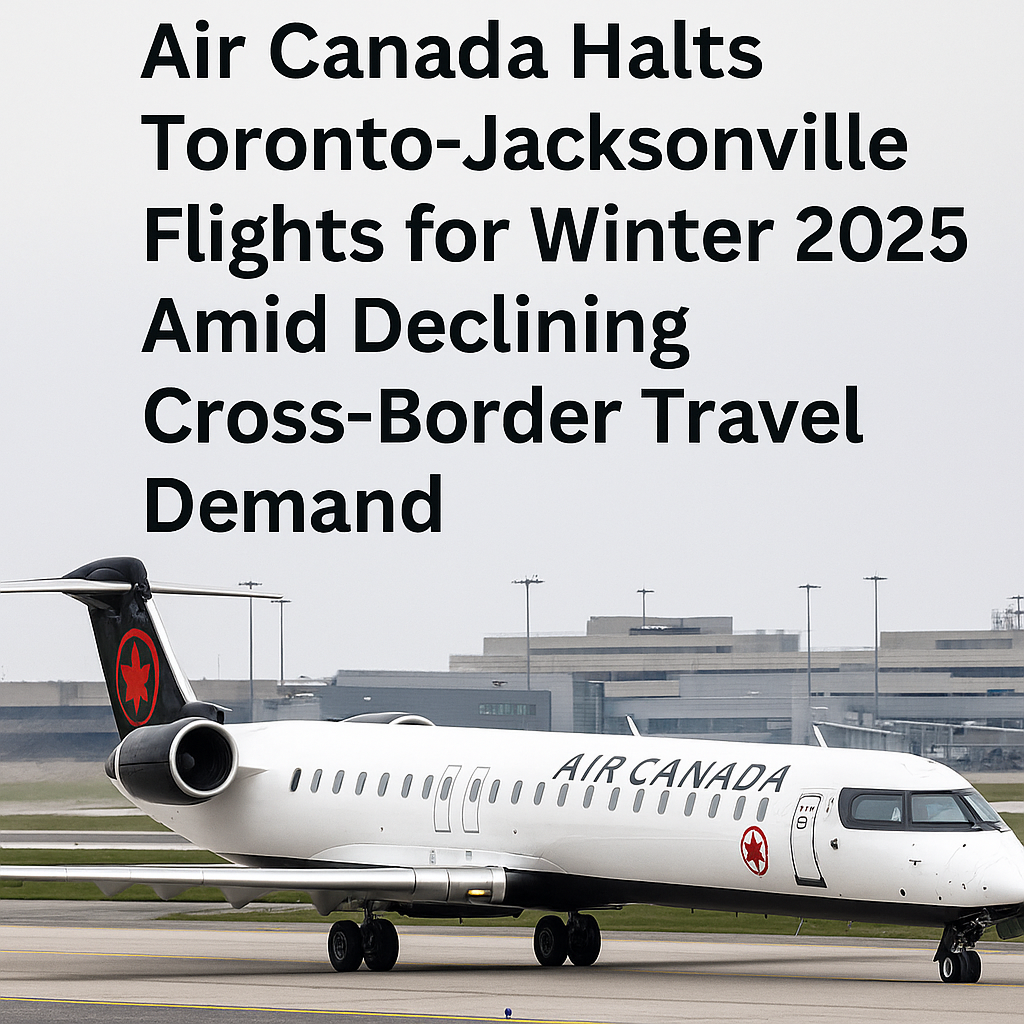Air Canada has announced the temporary suspension of its Toronto to Jacksonville route for the Winter 2025 season, signaling a strategic shift in response to weakening demand for cross-border air travel. The route will be paused from November 2025 through March 2026, with service scheduled to resume in the summer of 2026.
This move reflects broader market dynamics, particularly the cooling enthusiasm among Canadian travelers for U.S. destinations, as political sentiments and travel preferences continue to evolve.
A Tactical Response to Market Realities
Originally scheduled to operate daily using the Bombardier CRJ 900, a 76-seat regional jet with business, premium economy, and economy seating, the Toronto-Jacksonville route was designed to provide a direct connection between Canada’s largest city and one of Florida’s growing urban centers.
However, with bookings falling short of expectations—especially during the winter months—Air Canada opted to put the service on hold. The airline cited a strategic need to optimize fleet utilization and adjust to demand fluctuations without compromising operational efficiency.
Canadian Demand for U.S. Flights Continues to Drop
According to recent aviation data from Canadian transportation authorities, outbound flights from Canada to the U.S. have experienced a noticeable drop in 2025. In April alone, departures declined by 14%, with May registering an even steeper decline of 24.2%. This consistent drop coincides with increased traveler interest in Europe and Asia, as more Canadians explore long-haul international destinations rather than nearby U.S. cities.
The decline in Canada-U.S. air travel is being attributed to a mix of factors including changing political attitudes, evolving travel tastes, and economic uncertainty that has made Americans less appealing to Canadian leisure travelers during off-peak seasons.
Industry-Wide Shift in Cross-Border Flight Strategy
Air Canada is not the only airline making strategic changes to its U.S.-bound flight schedules. Other Canadian carriers such as Flair Airlines, Air Transat, and Sun Country Airlines have also scaled back on certain U.S. routes in response to waning demand.
On the flip side, U.S.-based airlines are responding differently. United Airlines has modestly increased its cross-border capacity by 3.9% in 2025, while Alaska Airlines and Porter Airlines have expanded their Canadian operations by 14.5% and 15.1%, respectively. However, higher capacity has not necessarily translated to increased profitability, as load factors remain under pressure due to inconsistent traveler demand.
Fleet and Resource Optimization
The Bombardier CRJ 900 aircraft used on the Toronto-Jacksonville route is expected to be reassigned to other North American markets that show stronger seasonal or year-round demand. Air Canada’s resource strategy focuses on ensuring high aircraft utilization, maximizing yield per available seat mile, and supporting more profitable routes during lean travel periods.
The airline’s decision to reduce service also helps balance operational costs and reinforces Air Canada’s commitment to financial prudence amid an unpredictable demand landscape.
Implications for Florida-Bound Travelers
Florida has long been a preferred destination for Canadian travelers, particularly snowbirds seeking warmth during the winter months. The suspension of the Toronto-Jacksonville route limits direct options for travelers heading to northeast Florida, forcing them to consider connecting flights via major hubs such as Miami, Orlando, or Atlanta.
Despite this, Air Canada continues to offer flights to other Florida cities such as Fort Lauderdale, Tampa, and Orlando, ensuring that Canadian passengers still have access to popular Sunshine State destinations.
Future Outlook and Strategic Direction
While this suspension is temporary, it underscores a larger pattern in the airline’s approach—prioritizing routes that align with current market demand and strategic network goals. Air Canada remains committed to North American connectivity but is increasingly selective about which routes to operate year-round versus seasonally.
Looking ahead, the Toronto-Jacksonville service is expected to return in Summer 2026, assuming conditions improve and demand rebounds. This seasonal recalibration allows Air Canada to conserve operational resources while maintaining its long-term interest in serving Florida markets.
Conclusion: A Sign of a Shifting Travel Economy
Air Canada’s decision to halt Toronto-Jacksonville flights during the Winter 2025 season exemplifies the ongoing transformation of the post-pandemic travel economy. As travelers recalibrate their preferences and political developments influence destination popularity, airlines must adapt quickly to safeguard their financial and operational integrity.
For travelers and tourism stakeholders alike, the change is a reminder that air routes are fluid, shifting with the tides of consumer sentiment, economic pressures, and global travel trends.
As Air Canada adjusts its network, the airline’s focus remains on agility, efficiency, and customer-centric route planning—ensuring that when demand returns, so will the direct flights Canadians have long relied on.
For more travel news like this, keep reading Global Travel Wire
















